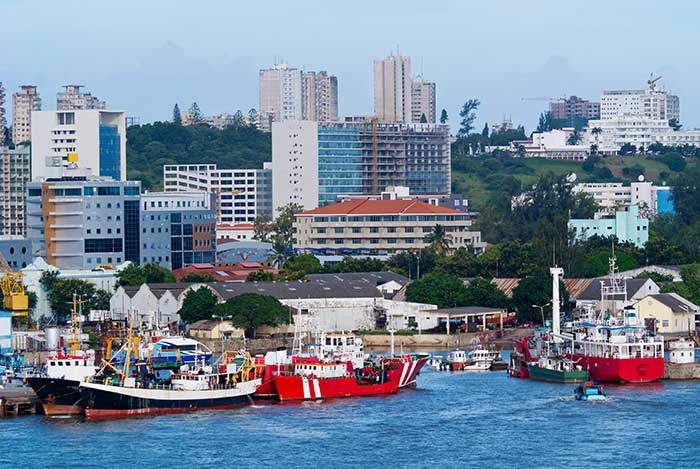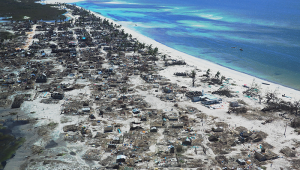web_maputo_shutterstock_135679997.jpg

A port in Maputo, the capital of Mozambique
The FT reported that bondholders had given Mozambique’s proposals a “thumbs down” and predicted “complex negotiations” that would stretch beyond the country’s talks with International Monetary Fund scheduled for January.
Mozambique declared it was in a state of debt distress last week and said it had to restructure its repayments if it was to receive further aid from the IMF, which cut the country off after uncovering $1.4bn in secret debts in April.
Including these previously undisclosed loans, Mozambique – one of world’s poorest nations – expects a debt to GDP ratio of 130% by the end of the year.
The country’s finance ministry published a 20-page presentation on its website on Tuesday, detailing the need for debt restructuring.
Following the discovery of rich gas reserves, the country had borrowed heavily in the anticipation of a substantial economic boom. However, with collapses in commodity prices and foreign investment, this failed to materialise.
Investors that began channelling money into Mozambique when the country’s debt ratio was low now feel duped and face stomaching heavy losses, with the alternative being default.
Mozambique’s bonds tumbled last week after the treasury published its presentation, which set a January target to implement the restructuring.
Financial advisory firm Lazard Freres SAS and law firm White & Case have been appointed to start talks with creditors “in the coming days”. But, with investors feeling bitter and reluctant and the economic situation increasingly dire, negotiations are likely to run on.
The country’s currency collapsed by 70% against the dollar this year, growth has slowed to 4% and the government was forced to revise its 2016 budget, which now shows a deficit of 11.3% of GDP.
Along with the IMF, other donors, including the UK, also suspended finance to Mozambique in the wake of the scandal, which proved disastrous for a country that relies on foreign aid for about a quarter of all finance.
Mozambique now hopes talks with the fund in January will lead to the resumption of aid payments, but the government will need to have reached a restructuring deal with creditors before it can secure this lifeline.
Mozambique had originally balked at another IMF demand for an international, independent debt audit, but agreed to discuss the terms of this with the fund last month.
“Mozambique’s primary objective is to resume relations with the IMF in order to stabilise the economy and restore confidence of the international community,” Tuesday’s document said.
“IMF discussions can only result if Mozambique’s debt is on a sustainable path.”
The country is also working to secure foreign direct investment in projects that could substantially boost government revenue and its ability to repay its debts.
The Jubilee Debt Campaign, however, has stressed that Mozambique needs its debts to be cancelled.
Sarah-Jayne Clifton, director of the campaign, said: “Mozambique’s unpayable debt is the result of reckless lending and borrowing and the crash in commodity prices. It is immoral for those who lent the money or bought up the debts cheaply to now profit from the crisis.”
Mozambique’s debts are owed under English law, and Clifton also called on the UK government to use legal channels to prevent vulture funds from using British courts to claim the debts of poor countries.
The campaign, which first warned of a potential debt crisis in Mozambique in July 2015, said the current situation in the country, as well as in others such as Ghana, was the sign of a much wider debt crisis building across the developing world.
Last month, the United Nations Conference on Trade and Development, UNCTAD, also voiced concerns around a looming sovereign debt crisis in poorer states that borrowed heavily when times were good and are now unable to weather lower levels of growth.












